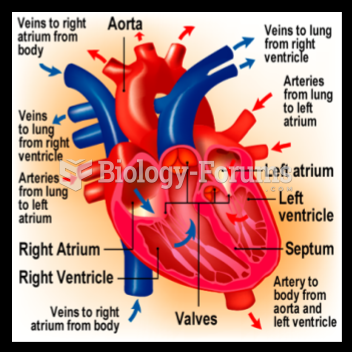|
|
|
In 1844, Charles Goodyear obtained the first patent for a rubber condom.
There are more nerve cells in one human brain than there are stars in the Milky Way.
If all the neurons in the human body were lined up, they would stretch more than 600 miles.
Tobacco depletes the body of vitamins A, C, and E, which can result in any of the following: dry hair, dry skin, dry eyes, poor growth, night blindness, abscesses, insomnia, fatigue, reproductive system problems, sinusitis, pneumonia, frequent respiratory problems, skin disorders, weight loss, rickets, osteomalacia, nervousness, muscle spasms, leg cramps, extremity numbness, bone malformations, decayed teeth, difficulty in walking, irritability, restlessness, profuse sweating, increased uric acid (gout), joint damage, damaged red blood cells, destruction of nerves, infertility, miscarriage, and many types of cancer.
Aspirin is the most widely used drug in the world. It has even been recognized as such by the Guinness Book of World Records.







